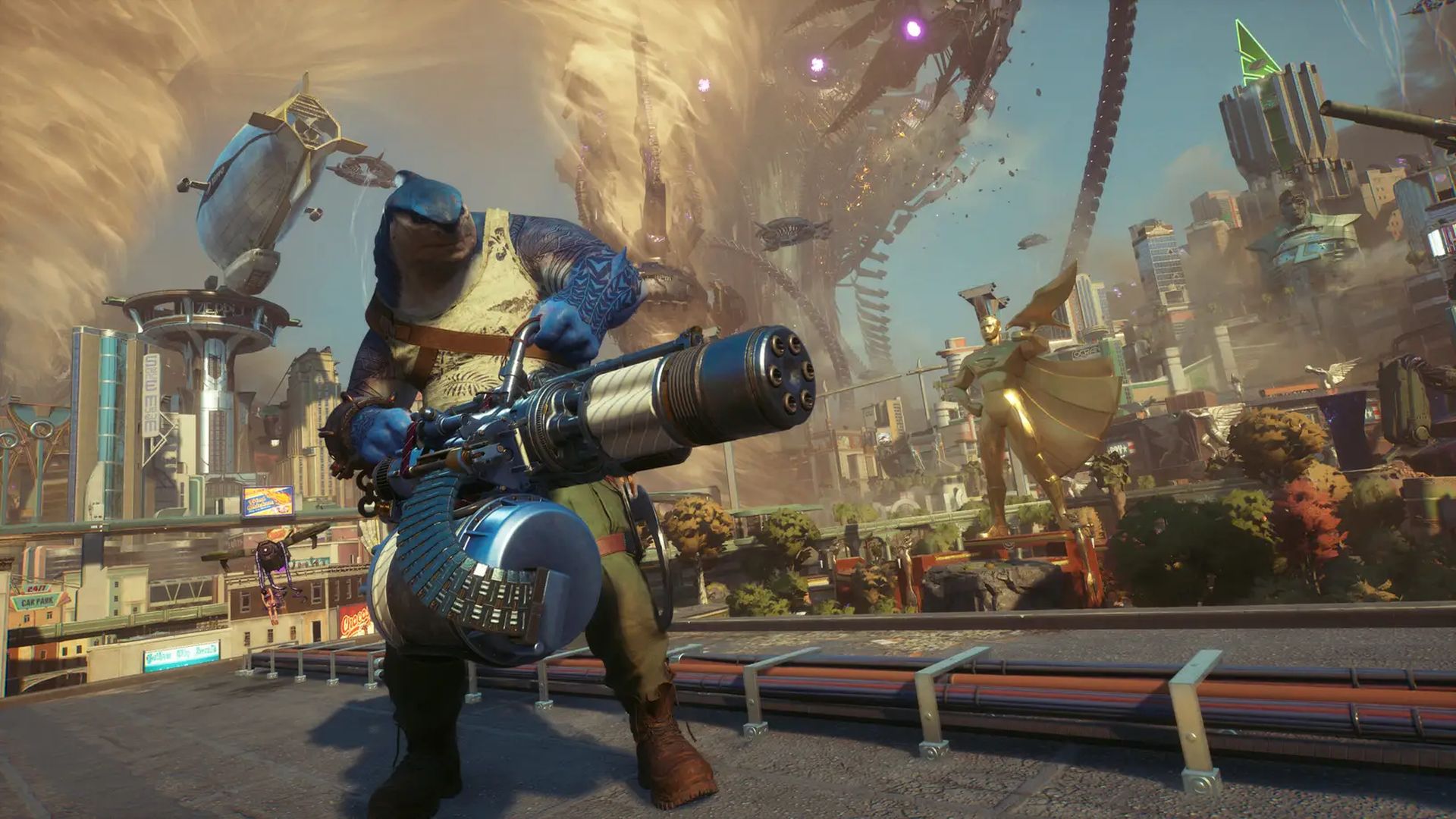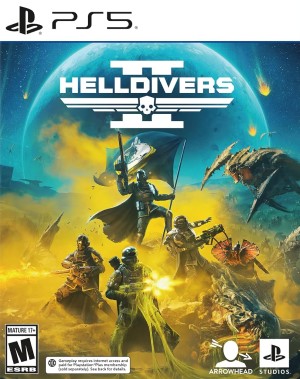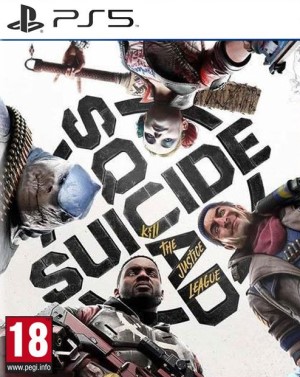
The past month or two has been somewhat of a haze if you follow the games industry, between layoffs, studio closures and cancelled projects. However, it’s also seen the launch of several big titles, including Tekken 8 and Like a Dragon: Infinite Wealth, not to mention announcements like Microsoft bringing Hi-Fi Rush and Sea of Thieves to other platforms. Then you have the likes of Dragon’s Dogma 2 and Rise of the Ronin launching in March.
Such a chaotic and release-packed period isn’t without its surprises, though. It started with Palworld, Pocketpair’s innocuous survival crafting title with creature collecting, battling and more than its share of morally grey affairs. Since launching in early access for PC, Xbox One and Xbox Series X/S, it’s become a massive hit, selling 15 million copies on Steam and crossing 10 million players on Xbox.
Many things contribute to its appeal, but above all, it achieved this level of success despite having a relatively smaller team. Such is the breakout success of the title that Pocketpair has found itself overwhelmed and is desperately trying to hire more developers.
Then came Helldivers 2. Despite Sony publishing the title, it doesn’t own Arrowhead Game Studios, whose last title was – shock of shocks – Helldivers 1. The studio is bigger than Pocketpair at about 100 employees, but this isn’t a big-budget triple-A shooter. Furthermore, despite so much going against it – launching so close to other major titles, a live-service approach and controversial (albeit misunderstood) monetization – it amassed a strong player base that continued growing for weeks.
The peak concurrent player number on Steam eventually grew to beat out the lifetime peaks of Grand Theft Auto 5, Destiny 2 and Starfield despite multiple server issues (which are especially problematic for such a co-op-focused title). Its peak on Steam sits at 458,709 players, and even if it recently hasn’t hit that, its 24-hour peak still reached 360,630. This is all on top of studio CEO Johan Pilestedt indicating that three million copies have been sold since launch.
Helldivers 2 was in development for nearly eight years. Palworld’s development time was about three, but considering it’s in early access, it could take another year or so before its full launch.
Then there are the other titles which have spent years and years in development, launching in February to an underwhelming response. Suicide Squad: Kill the Justice League represents Rocksteady’s first new game since Batman: Arkham Knight – it reportedly started development in 2017 and faced its share of reboots and delays. Impressions leading up to the launch were mixed, to say the least, and while there were some positive reviews, the overall story, mission design and end-game failed to impress.
Suicide Squad barely crossed 13,000 peak concurrent players on Steam; with Season 1 out later this month, its 24-hour peak is nearly 600 players. Shockingly enough, Warner Bros. Discovery revealed that the live service title had failed to meet its expectations, and the company was in for a tough quarter compared to last year. Sales figures were not revealed.
Then you have Skull and Bones, a pirate-focused naval combat title that rumours claim development began in 2013, and it’s been through development hell ever since. Constant delays, reboots, setting changes, leadership figures leaving the team – the budget reportedly hit $200 million when it finally launched on February 16th. While its peak concurrent players aren’t known, Insider Gaming reported about 850,000 players in less than a week.
That doesn’t sound too bad by itself, but players from the free eight-hour trial are also included in the total. For a title with that kind of budget, a $70 price tag (which some development team members reportedly didn’t want to set), microtransactions and a live service model – which the develoepr dubbed a quadruple-A game – those numbers sound disastrous. Again, sales numbers have yet to be officially revealed, but hey, like Suicide Squad, Season 1 starts this month.
Amid all this, there are some lessons that Palworld and Helldivers 2 can teach to both titles – besides that good games can usually sell well.
The first is in developing something that the team wants to play rather than following a corporate mandate. “A game for everyone is a game for no one” is pretty much Arrowhead’s slogan, and you can see that in the overall focus and premise of Helldivers 2. It may be a live-service title, but it’s using that in service of what the game is rather than because it’s trying to capture the success of Destiny 2 or Fortnite. Palworld is likely born out of wanting to make a Pokemon-style competitor with a massive world to explore.
Pocketpair CEO Takuro Mizobe took a gamble on the development and decided to devote as many resources as possible without “worrying about the budget.” That doesn’t mean it had a cash stockpile, but that the team would continue working until “the bank account balance reaches zero.” It’s not the most financially responsible way to go about anything, but the risk paid off.
This segues into the second lesson pretty well. Unlimited resources and obscene budgets don’t necessarily make for great games. Suicide Squad: Kill the Justice League is a triple-A project through and through, whether it’s the use of Hollywood actors for its cast, the well-produced cutscenes, or the year’s worth of post-launch support announced before its launch.
Skull and Bones, as noted earlier, had an obscene budget for a title that ultimately failed to deliver. Would it have been ideal if the developer just cancelled the project and recouped its losses? Time will tell, especially when the underwhelming performance launches of games like Ghost Recon Breakpoint led to extraordinary losses for the publisher.
There are many more obvious lessons, like not having a studio known for developing a trilogy of critically acclaimed single-player titles with beat ’em-up combat working on a third-person co-op shooter. Or that chasing trends like live service, just because publishers want that sweet long-term revenue from microtransactions and battle passes, isn’t a recipe for success.
You think that would be obvious by now, given the failures of big-name titles like Anthem, Marvel’s Avengers, Battleborn and Gundam Evolution, or smaller-scale efforts like Knockout City and many more. Alas, here we are.
There have been plenty of good games, single-player or not, which didn’t perform as well as expected. Regardless, it’s pretty hard to look at indie successes like Palworld or double-A titles like Helldivers 2 and not see the stark contrast with titles like Suicide Squad: Kill the Justice League and Skull and Bones.
There’s an inherent disconnect between what some publishers think sells versus what players want, which becomes more apparent as time passes (to the point now where it’s blindingly obvious). Perhaps the silver lining is that good games continue being made and highlight that disconnect all the more, even after all these years.
Note: The views expressed in this article are those of the author and do not necessarily represent the views of, and should not be attributed to, GamingBolt as an organization.


















